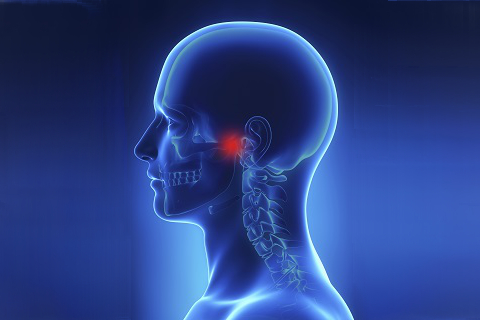Symptoms of Nasopharyngeal Carcinoma (NPC) is a rare tumor that originates in the nasopharynx, which is located at the back of the nose, near the Eustachian tubes. This condition is allegedly triggered by the Epstein Barr Virus and/or some other causes.
Symptoms of Nasopharyngeal Carcinoma Cancer
Since the nasopharynx is located at the back of the nose and it’s directly above the oral cavity, the NPC’s most common symptoms affect the ears, mouth, and nose. Tumors develop in the passageway and place pressure on the nerves of that region along with other organs. As a result, the patient is likely to experience ear infections, frequent nosebleeds, headaches, and mouth and ear pain (two of which are also the symptoms of mouth cancer).
Here are some common symptoms of this condition:
- Ringing in the ears
- Blurry vision
- Chronic nasal congestion
- Difficulty in opening the mouth
- Pressure in the ear canal
- Tingling/numbing in the face
- Frequent nose bleeds
- Bloody discharge from the nose
- Unexplained soreness of the throat
- Frequent headaches
- Weight loss
When these symptoms become pronounced over time or some symptoms such as blurry vision come and go, you must see a doctor. Keep an eye on the signs on NPC like you would in case of the Coronavirus disease.
Can You Feel The Nasopharyngeal Cancer?
Apart from the symptoms of Nasopharyngeal, some people can also feel small lumps on both or one side of their neck. Don’t confuse these lumps with tumors. They are actually the inflamed lymph nodes. So yes, you can sometimes feel cancer!
Most nodes are small and can’t be felt. But when the node is infected by the cancerous cell, it swells and enlarges. They can remain swollen for several days and hence deserve medical attention.
What Causes NPC?
Usually, there is one or more genetic mutation that causes cancer to begin. It makes the normal cells grow out of control. They end up invading the surrounding structures eventually metastasizing to other parts of the body.
If you are wondering what exactly causes gene mutations leading to nasopharyngeal carcinoma, the actual factors are unknown. It is believed that one of the triggers is the Epstein Barr Virus. However, some people with severe EBV don’t develop cancer at all. Hence, EBV can’t be blamed for sure.
How Is It Diagnosed?
When you are experiencing stress symptoms like headache, face paralysis that comes and go, or frequent symptoms like nose bleed, visit a medical practitioner. This condition is diagnosed by performing a biopsy of the tumor using a small endoscope. Ahead and neck surgeon is the right person to visit for visualizing the tumor.
Your medical history will be examined and a few tests will be performed for the diagnosis which includes:
Biopsy
Endoscopic biopsy and fine-needle aspiration biopsy
Imaging tests
Chest X-ray, CT scan, MRI, and PET scan
Blood tests
CBC, EBV DNA levels, and blood chemistry
What are the Risk Factors?
Knowing symptoms of Nasopharyngeal is not enough. Here are some factors that happen to increase a person’s risk of developing NPC:
Gender
This cancer is more common in men than women.
Race
It’s more common in Southeast Asia, China, and Northern Africa.
Age
NPC can occur at any age. It’s common among adults between 30 and 50 years.
Certain Foods
Being exposed to chemicals released in steam when cooking salt-cured food at an early age can increase the risk of developing this cancer.
Family History
Did you know one of the causes of insomnia includes family history too? Much like insomnia, if you have a family history of NPC, you are at risk of developing this disease.
Tobacco and Alcohol Consumption
Heavy intake of tobacco and alcohol can increase the risk of developing NPC.
Treatment Options
The treatment for this cancer includes radiation therapy and chemotherapy. If the tumors are removable, surgery may be performed. However, nasopharynx surgery is complicated. Surgeons these days are using the latest endoscopic surgical techniques which include fiber optic scopes and some thin surgical instruments for accessing the tumor and removing it. If cancer has spread to the nodes, neck dissection is performed for removing the nodes.
Can You Prevent the Nasopharyngeal?
Nasopharyngeal cancer cases are not preventable. However, there are some steps that you can take to lower the risk of developing it. These include reducing the intake of alcohol, eliminating salt-cured meat and fish from your diet, and quitting smoking.
Unfortunately, the life expectancy of patients with NPC is expressed in a five-year survival ratio. This means that the people who are diagnosed with this cancer remain alive for 5 years after the diagnosis, provided how controlled the spread of the cancer is and other health conditions.




